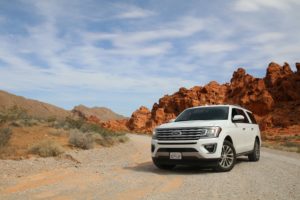Buying a car is a large financial decision that families face. While the sticker price catches most attention, the final cost is shaped by fees. Some fees are standard and required by law. Others are negotiable or added by the dealership.
Not knowing about these charges can leave a buyer surprised at closing. Learning what fees you should pay when buying a used car gives drivers control over their budget before signing any papers.
Why Fees Matter in Used Car Purchases
A used car often feels like a smart choice. Buyers gain value by avoiding the steep depreciation of new vehicles. Still, the purchase is not free of hidden costs. Taxes, documentation fees, insurance, and optional add-ons all influence the total price.
Understanding what the fees are when buying a used car allows buyers to prepare in advance. Instead of focusing only on the base price, a clear view of added expenses leads to smarter decisions. Families can then compare vehicles fairly and avoid agreeing to costs that do not match their needs.
Documentation Fees
A documentation fee, often called a “doc fee,” covers the dealer’s work in processing paperwork. This includes handling the registration, filing with the state, and managing title transfer. Some states cap this fee, while others leave it open.
The fee can range from a small flat amount to several hundred dollars. While the dealer often presents it as standard, buyers should ask questions. In some places, there is room for negotiation. Even if the fee cannot be removed, knowing about it prevents last-minute surprises at signing.
Reconditioning Fees
Reconditioning fees cover the dealer’s cost of preparing a used car for resale. This might include inspections, repairs, or cosmetic work to make the car appealing. While reconditioning is common practice, not every dealer lists it as a separate fee.
When a reconditioning fee appears on paperwork, it is often negotiable. Buyers may ask for a breakdown of what the fee covers. If the vehicle is already in good shape, the charge may not make sense. Having this conversation helps keep the deal fair.
Advertising Fees
Some dealers add an advertising fee to cover the cost of marketing. This may include online listings, photos, or even local promotions. From the dealer’s view, these costs help attract buyers.
Still, advertising is usually considered a business expense. Passing the fee on to the buyer is not always reasonable. If this fee shows up on the bill, ask the dealer to explain it. In some cases, it may be waived after discussion.
Sales Tax
Sales tax is one of the unavoidable fees when buying a used car. The amount depends on the state and sometimes the local county or city. Tax rates usually range between two and eight percent of the purchase price.
Sales tax is not included in the sticker price of the car. This is why buyers often feel surprised at the final number. To stay prepared, check the tax rate in advance and calculate how much it adds. Doing this early makes it easier to set a realistic budget.
Extended Warranty
When the factory warranty has expired, dealers may offer extended warranty options. These plans promise to cover certain repairs for a set time or mileage. While some buyers value the peace of mind, extended warranties often come with limits.
They rarely cover regular wear and tear such as brake pads, tires, or fluids. Reading the details is important. A buyer should weigh the cost of the warranty against expected repairs. In some cases, setting aside savings for maintenance may be a better option.
GAP Insurance
Guaranteed Asset Protection, or GAP insurance, covers the difference between a loan balance and the car’s current value if the vehicle is totaled. For example, if a driver owes $15,000 on a car worth $12,000, GAP insurance helps cover the $3,000 gap in case of loss.
Some lenders or dealers may offer GAP as part of financing. Before agreeing, buyers should compare the cost with options from regular insurance providers. This helps find the best rate without paying more than necessary.
Optional Upgrades
Dealers sometimes add fees for upgrades such as window tinting, fabric protection, or wheel packages. While these may improve the look or function of a car, they often come at a higher price through the dealership.
Buyers benefit from comparing these add-ons with local vendors. For instance, window tinting from a dealer may cost more than having it done at a trusted shop. Evaluating upgrades separately helps families spend only on what they truly want.
Insurance Costs
Beyond dealer fees, insurance is a required expense that adds to the cost of ownership. Rates depend on the driver’s age, driving history, and the type of vehicle. Some cars, especially newer or higher-value models, may come with higher premiums.
Before purchasing, buyers should contact their insurance provider to request a quote. Doing this in advance allows them to understand the ongoing monthly cost. This step also avoids surprises when it is time to register the car.
Maintenance Expectations
Though not a fee at the time of purchase, maintenance is part of the long-term expense of owning a car. Some vehicles are known for lower upkeep, while others may need more frequent repairs.
Researching common issues and costs related to a chosen model can help buyers decide if it fits their budget. For example, a car with affordable parts and simple systems might save hundreds in repair costs over the years.
The Role of Financing in Overall Fees
Financing adds another layer of cost to a used car purchase. Interest rates and loan terms can significantly shape the total expense. While fees when buying a used car often refer to upfront charges, the financing choice carries weight over time.
Borrowers should review the structure of the loan, including interest calculation methods and repayment length. A loan with lower monthly payments might look attractive, but stretched over many years, it can add thousands in extra costs. On the other hand, shorter loans may save on interest but raise the monthly burden.
Dealer Preparation Fees
Dealer preparation fees, sometimes called “prep fees,” are meant to cover the cleaning and basic servicing of a car before sale. This might include washing, checking fluids, or topping off the gas tank. While these tasks are part of presenting a car for sale, some dealers itemize the cost separately.
Many buyers find prep fees unnecessary, as a clean and ready car should already be part of the sale. If this fee appears on your paperwork, you may ask about having it removed or reduced. Even a small amount matters when balancing a budget.
License and Registration Fees
License and registration fees are government charges tied to making the car legal for the road. These costs vary by state, and in some places by the weight or type of the vehicle. Dealers often handle the paperwork for convenience, then pass the fee to the buyer.
Because this fee is linked to legal requirements, it is usually non-negotiable. Still, knowing the expected cost ahead of time helps you prepare. Asking the dealer for an exact figure during early discussions avoids surprises later in the process.
Emissions and Safety Testing Fees
Some states require cars to pass emissions or safety testing before they can be registered. Dealers may handle this step, then add the testing fee to the purchase agreement.
This charge is often legitimate, but it is worth confirming. Ask if the car has already passed inspection or if you must pay again in the future. A clear answer saves both time and money.
Trade-In Considerations
If you plan to trade in your current car, the value of that vehicle directly affects the final balance of your purchase. In some cases, dealers may apply fees linked to the trade-in, such as transfer or title processing.
Buyers interested in exploring options can also consider selling separately. For example, you can explore programs, which often give direct value without folding costs into another transaction. Knowing your options gives you leverage and helps you get the most from your current vehicle.
Negotiable Versus Non-Negotiable Fees
Not every fee is set in stone. Taxes, registration, and state testing usually fall under government regulation and cannot be avoided. However, dealer prep, advertising, documentation, and reconditioning are often negotiable.
When reviewing your paperwork, ask direct but polite questions about each fee. If you do not understand a charge, request a breakdown. This approach builds trust and often leads to fairer terms.
Why Understanding Fees Matters
Buying a used car is more than picking a vehicle you like. It is about balancing upfront costs, monthly obligations, and future maintenance. By asking, “What fees should I pay when buying a used car?” you give yourself the chance to plan.
Families who prepare ahead of time gain peace of mind. Instead of rushing through signatures, they can make informed choices that protect both their wallets and their long-term comfort.
Drive With Confidence Through Car Time Supercenter
Car Time Supercenter wants every driver to feel confident about their purchase. We explain all fees clearly, offer flexible financing options, and help you trade or sell your car with ease.
Visit us for car loans and flexible financing in Tucson and explore transparent, family-friendly service built around your needs.

There are good reasons people will buy their next used car in Tucson from Car Time Supercenter. But I think we are one of the most trusted used car dealerships mainly because we treat everyone like family. My family has provided quality, dependable local used cars to Tucson customers since 1984, and I’m proud to be a part of our continued success.
Like many family-owned businesses, I grew up going to work with my dad. Falling in love with cars was natural because of my father’s passion, and eventually, I came to love the car business just like him. I officially joined the Car Time Supercenter team in 2012, starting in the finance department. Over the past decade, I’ve learned the used car business and how to treat customers from my family and industry resources.
Today, I oversee marketing, social media, inventory, and reconditioning, so I play an essential role in delivering local Tucson used car buyers the best experience possible. I also help our family business keep up with the times while providing old-fashioned customer service. From attending NADA classes to becoming Allstate certified for back-end products, I continue to learn and add skills to serve our customers better.




